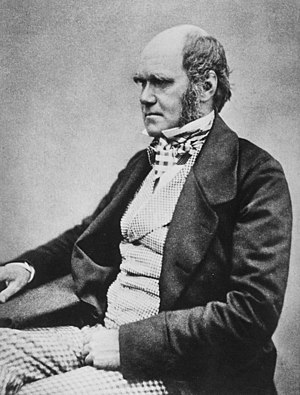
[Alexander von Humboldt was the] greatest scientific traveller who ever lived.
Share this quote:
Englishmen rarely cry, except under the pressure of the acutest grief; whereas in some parts of the Continent the men shed tears much more readily and freely.
Share this quote:
Linnaeus and Cuvier have been my two gods, though in very different ways, but they were mere schoolboys to old Aristotle.
Share this quote:
We cannot fathom the marvelous complexity of an organic being; but on the hypothesis here advanced this complexity is much increased. Each living creature must be looked at as a microcosm--a little universe, formed of a host of self-propagating organisms, inconceivably minute and as numerous as the stars in heaven.
Share this quote:
Attention, if sudden and close, graduates into surprise; and this into astonishment; and this into stupefied amazement.
Share this quote:
I agree with Agassiz that dogs possess something very like a conscience.
Share this quote:
I have called the principle by which each slight variation if useful is preserved by the term of Natural Selection.
Share this quote:
The expression often used by Mr. Herbert Spencer of the Survival of the Fittest is more accurate and is sometimes equally convenient.
Share this quote:
Light may be shed on man and his origins.
Share this quote:
I have called this principle by which each slight variation if useful is preserved by the term natural selection.
Share this quote:
The expression often used by Mr. Herbert Spencer of the Survival of the fittest is more accurate and is sometimes equally convenient.
Share this quote:
A man who dares to waste one hour of life has not discovered the value of life.
Share this quote:
As for future life every man must judge for himself between conflicting vague probabilities.
Share this quote:
The mystery of the beginning of all things is insoluble by us and I for one must be content to remain agnostic.
Share this quote:
As for a future life every man must judge for himself between conflicting vague possibilities.
Share this quote:
I have tried lately to read Shakespeare and found it so intolerably dull that it nauseated me.
Share this quote:
I love fools experiments. I am always making them.
Share this quote:
The very essence of instinct is that its followed independently of reason.
Share this quote:
Ignorance more frequently begets confidence than does knowledge: it is those who know little, and not those who know much, who so positively assert that this or that problem will never be solved by science.
Share this quote:
False facts are highly injurious to the progress of science, for they often endure long; but false views, if supported by some evidence, do little harm, for every one takes a salutary pleasure in proving their falseness.
Share this quote: